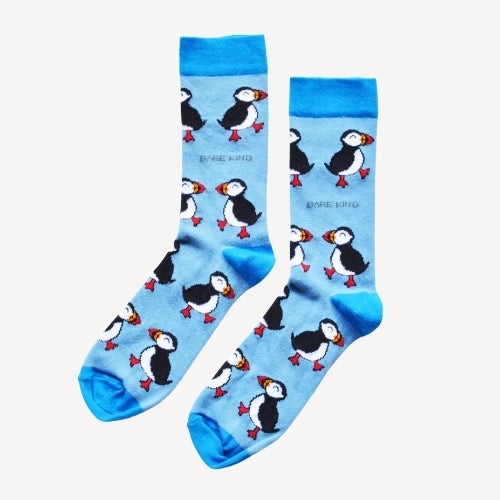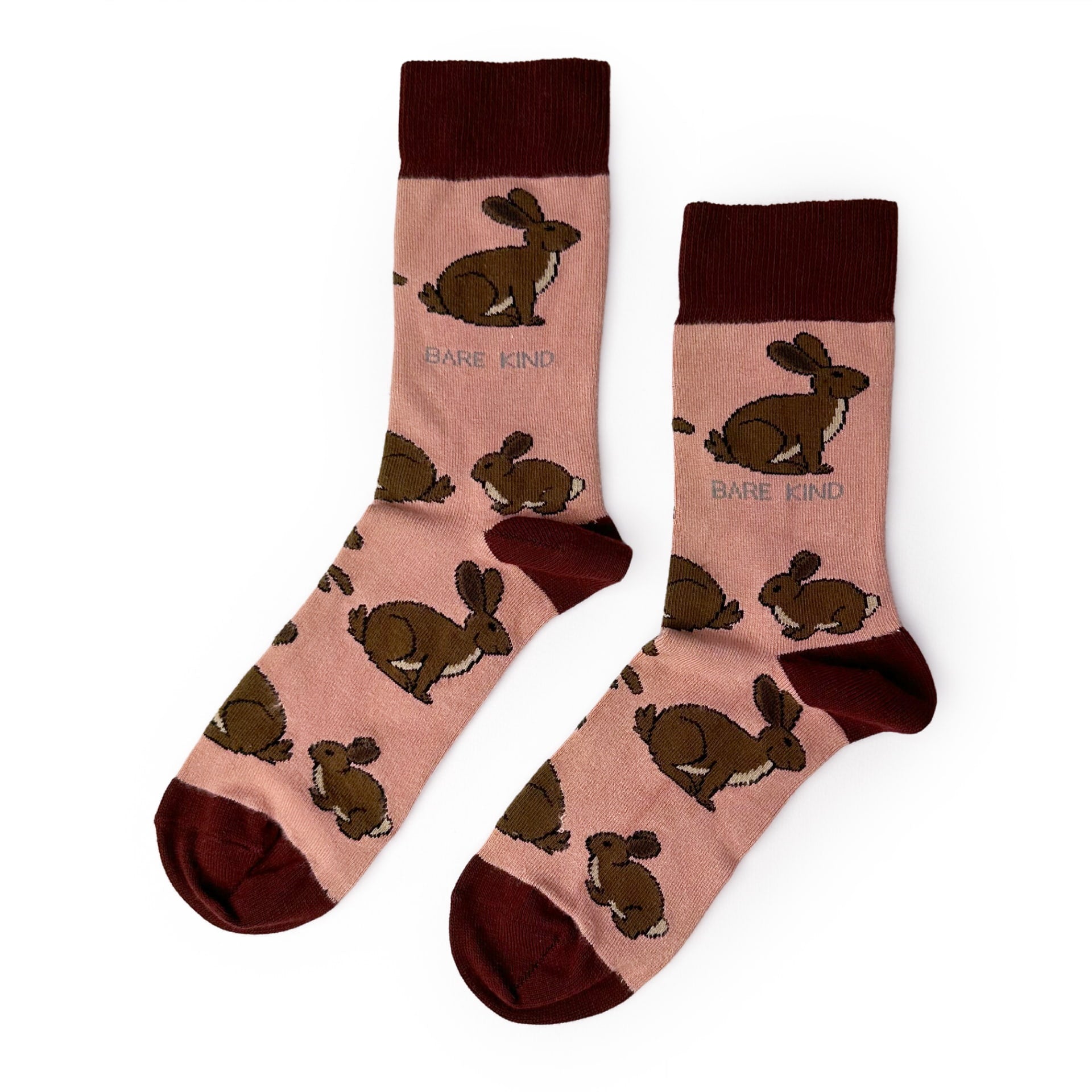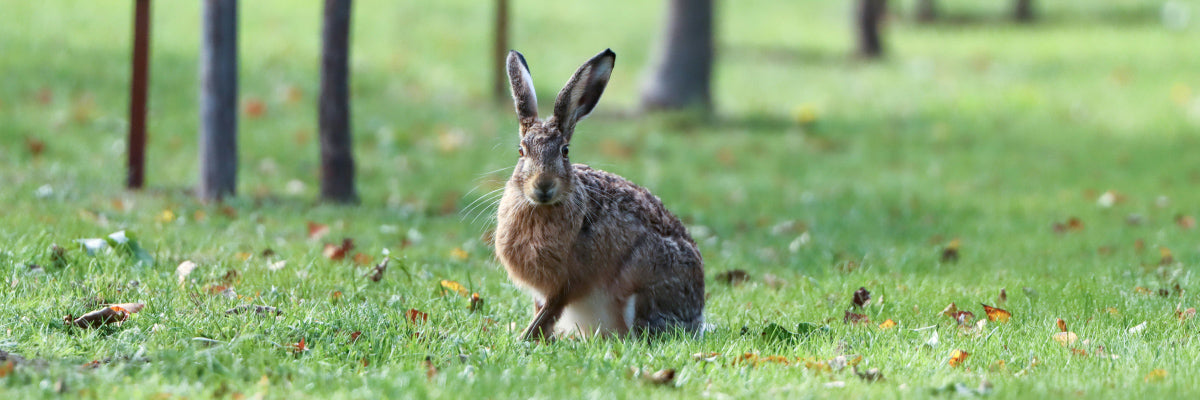
Save the Hares, Barn Owls and Highland Cows
with the North Wales Wildlife Trust
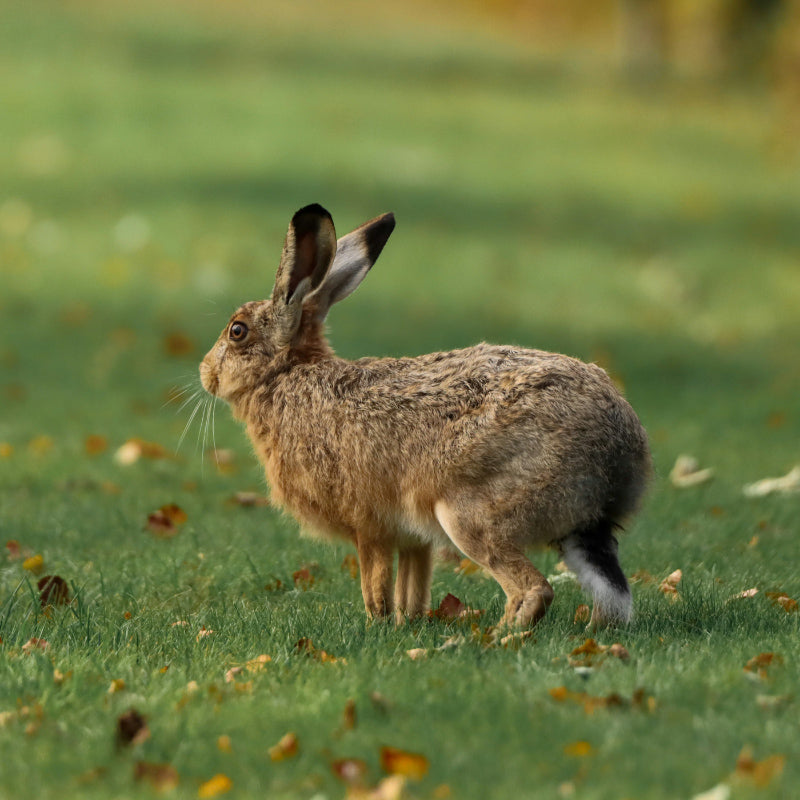
Hares are super swift animals that are built for power. They can reach speeds of up to 72 km/h which they use to escape from predators. They also use camouflage and zigzag running movements to escape. Hares are different from rabbits and can mainly be found in grasslands, farmlands and moors. Baby hares, called leverets, are born fully furred and with their eyes open. They can run almost immediately after birth! This is quite different from rabbits, whose babies, called kittens, are born blind, hairless, and entirely dependent on their mothers.
Hares do not dig burrows like rabbits do. They use burrows already created by warthogs or aardvarks instead of making their own. Hares spend most of their day lying in a small depression in the ground called a form. They are solitary creatures and don't live in large social groups like rabbits do. Unlike the domestic rabbit, hares have not been domesticated. They retain their wild instincts, which makes them more difficult to approach or tame. This untamed nature makes them symbols of wild freedom in literature and art.
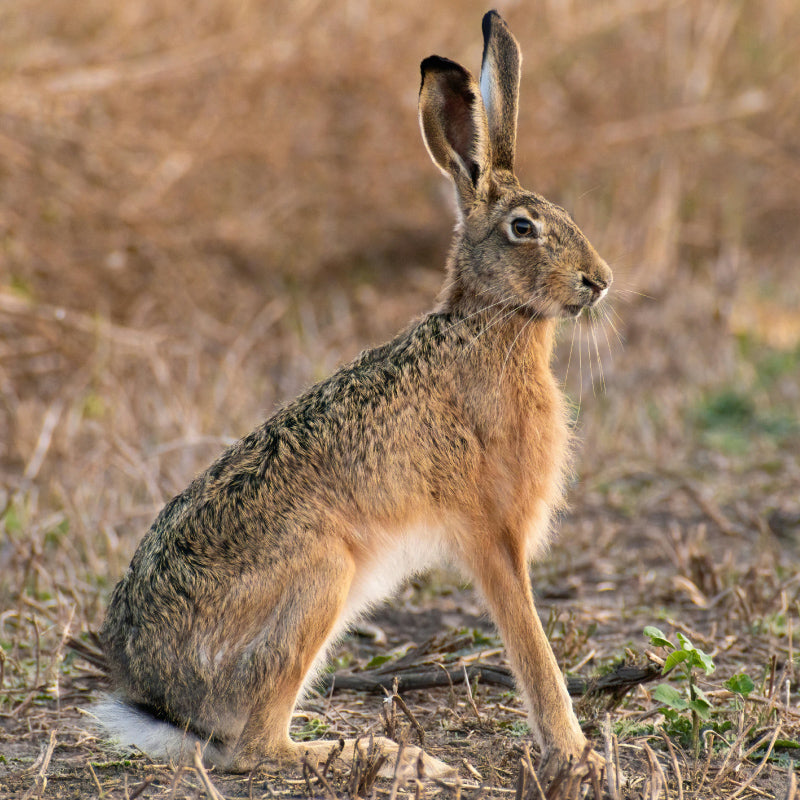
Hares are under threat because of human factors like habitat loss through ranching, fencing and settlements. Modern farming techniques, such as monoculture crops and the use of pesticides, negatively impact hares. Pesticides can reduce the availability of wild plants and insects that hares rely on for food. Additionally, the removal of hedgerows and natural vegetation for larger fields reduces their cover, making them more vulnerable to predators.
The North Wales Wildlife Trust is an organization that works with communities and volunteers across the UK to preserve and restore animal habitats. They work to protect and connect wildlife sites across the country to ensure that animals can move around more freely without interfering with humans in the process. The Trust manages over 750 acres of land for wildlife and teaches people of all ages about the importance of wildlife conservation.
At Bare Kind, we donate 10% of our profit from each pair of hare socks sold to the North Wales Wildlife Trust, protecting hares from habitat loss and the threat of extinction.
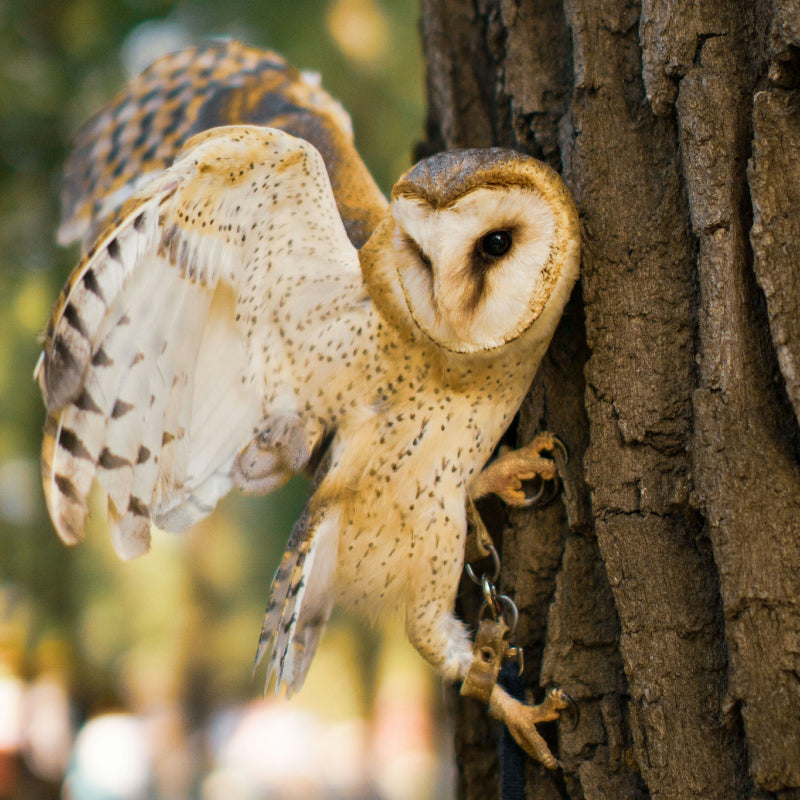
Barn owls are adorable creatures with big eyes and a beautiful, rounded face. They play a crucial role in controlling rodent populations. This makes them an essential part of both agriculture and ecosystems. A single barn owl can eat 3,000 rodents in a year! This significantly reduces the number of pests that damage crops and spread diseases.
Barn owls give farmers natural pest control and help them reduce their reliance on chemical pesticides. By keeping rodent numbers in check, barn owls indirectly support healthier crops, lower food production costs, and promote a more sustainable farming practice. Their presence in an area is often a sign of a healthy environment, and they play a part in balancing other species' populations. Additionally, barn owls have cultural significance in many societies, symbolizing wisdom and mystery, while their haunting calls and graceful flight have inspired numerous folklore stories.
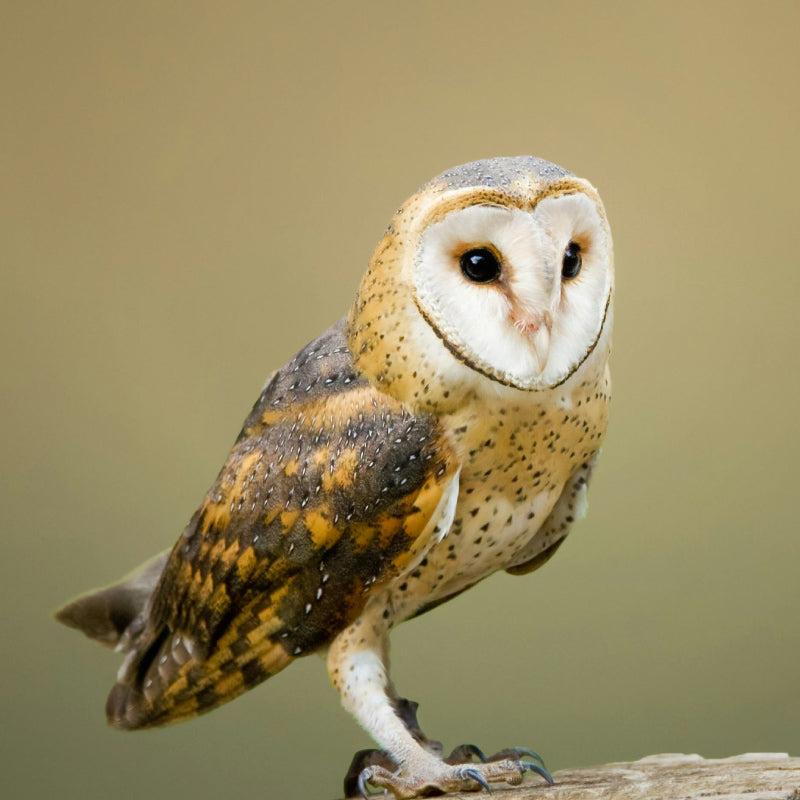
Limited habitats and nesting sites are the most major threats faced by barn owls today. This makes them unable to raise viable chicks that will grow to become adults and reproduce to keep the population going. Another threat to barn owls is ingesting poisoned rats or mice. This is especially the case for owls that live close to human dwellings.
The North Wales Wildlife Trust is an organization that works with communities and volunteers across the UK to preserve and restore animal habitats. They work to protect and connect wildlife sites across the country to ensure that animals can move around more freely without interfering with humans in the process. The Trust manages over 750 acres of land for wildlife and teaches people of all ages about the importance of wildlife conservation.
At Bare Kind, we donate 10% of our profit from each pair of barn owl socks sold to the North Wales Wildlife Trust, protecting barn owls from habitat loss and the threat of extinction.
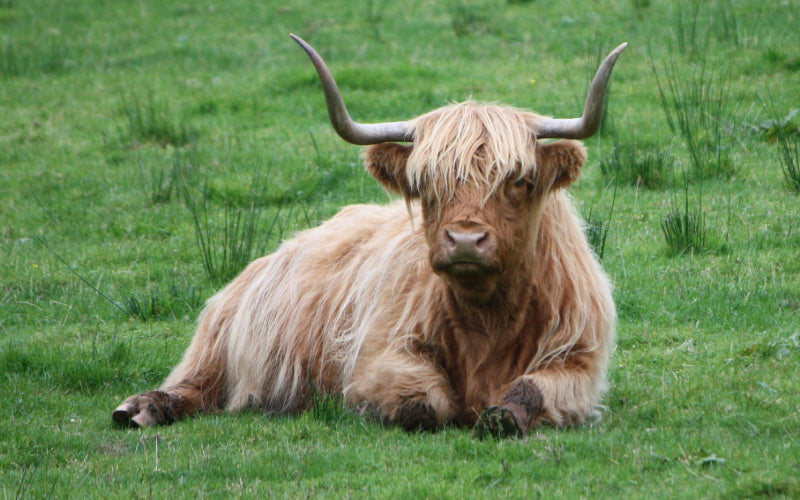
Though Highland cows look large and menacing, they’re actually super gentle and friendly creatures. Their long, fuzzy coats and impressive horns make them hard to miss in the rugged Scottish landscape. Highland cows grow twice slower than other cows and have a double coat to help them keep warm in the harsh Scottish weather. The outer fur coat serves as a natural raincoat that consists of oily hair that keeps them dry in the snow and rain.
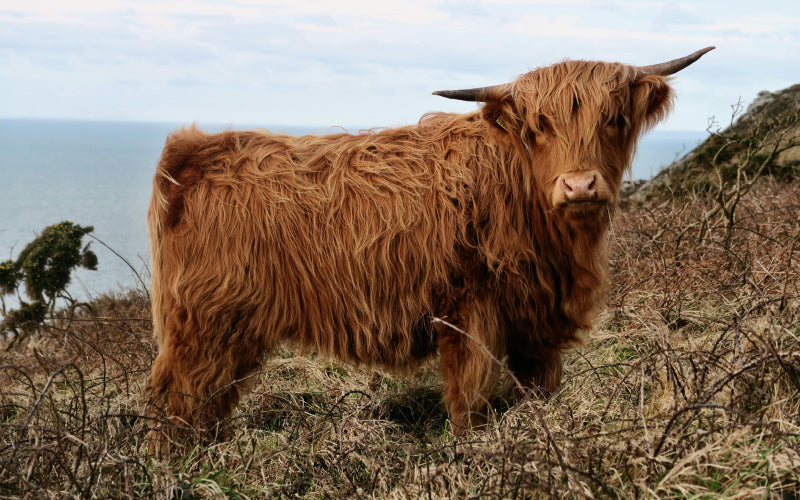
Highland cows are effective at controling vegetative growth and supporting sustainable land management practices. Their browsing habits have made them the cattle of choice for several conservation projects globally. The North Wales Wildlife Trust uses highland cows to clear conifer, birch and willow regeneration and maintain the open and wet character of their reserve. If this vegetation is left untouched, the reserve would succeed into wet woodland.
Sadly, the highland cow is at risk of extinction within Scotland. It is, however, no longer at risk from a global perspective. All interventions are needed to ensure the species isn’t pushed to the brink.
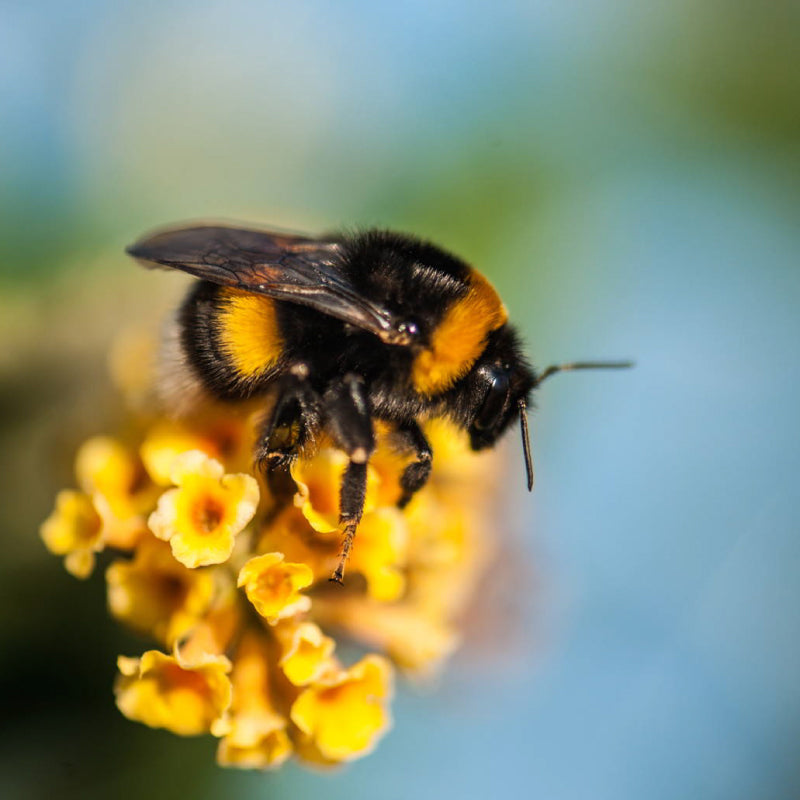
Bumblebees are an important species in the UK, playing a crucial role in pollinating crops and wildflowers. However, bumblebees are facing numerous threats, including habitat loss, pesticide exposure, and climate change. Supporting efforts to protect bumblebees can make a significant impact in preserving these important pollinators.
The North Wales Wildlife Trust is a dedicated force for nature conservation, working tirelessly to protect and enhance the region's diverse wildlife and habitats. They manage numerous nature reserves, providing safe havens for everything from rare orchids to elusive pine martens. Through their efforts, they restore and maintain vital ecosystems, including woodlands, wetlands, and coastal areas, benefiting a wide range of species. They also engage in crucial conservation projects, monitoring wildlife populations, and advocating for policies that safeguard the natural environment. Beyond practical conservation, they inspire and educate the public through events and programs, fostering a deeper appreciation for North Wales's rich biodiversity and encouraging community involvement in protecting it for future generations.
We donate 10% of profits from your hare, barn owl, highland cow socks to
Save the Hares Bamboo Socks
Share
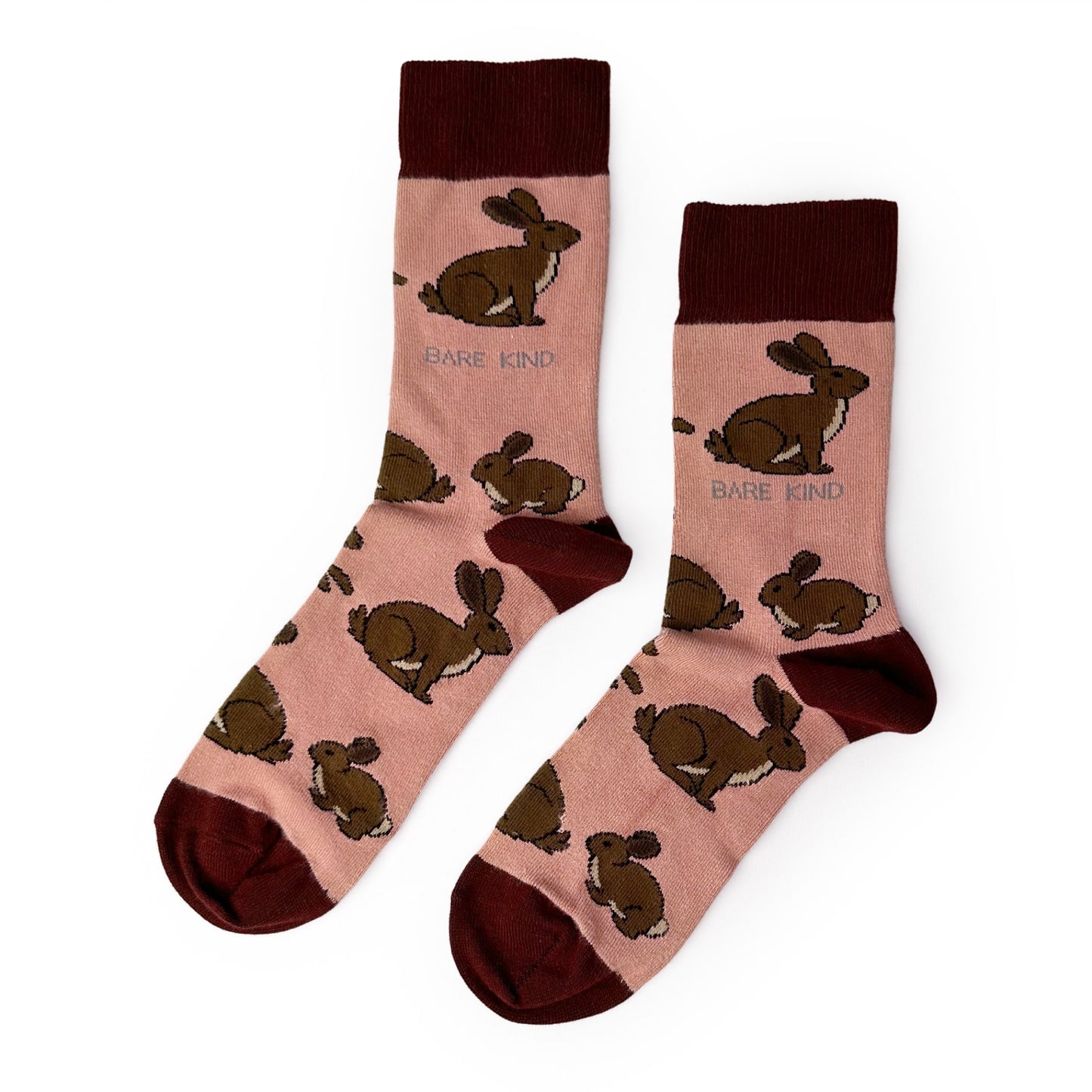
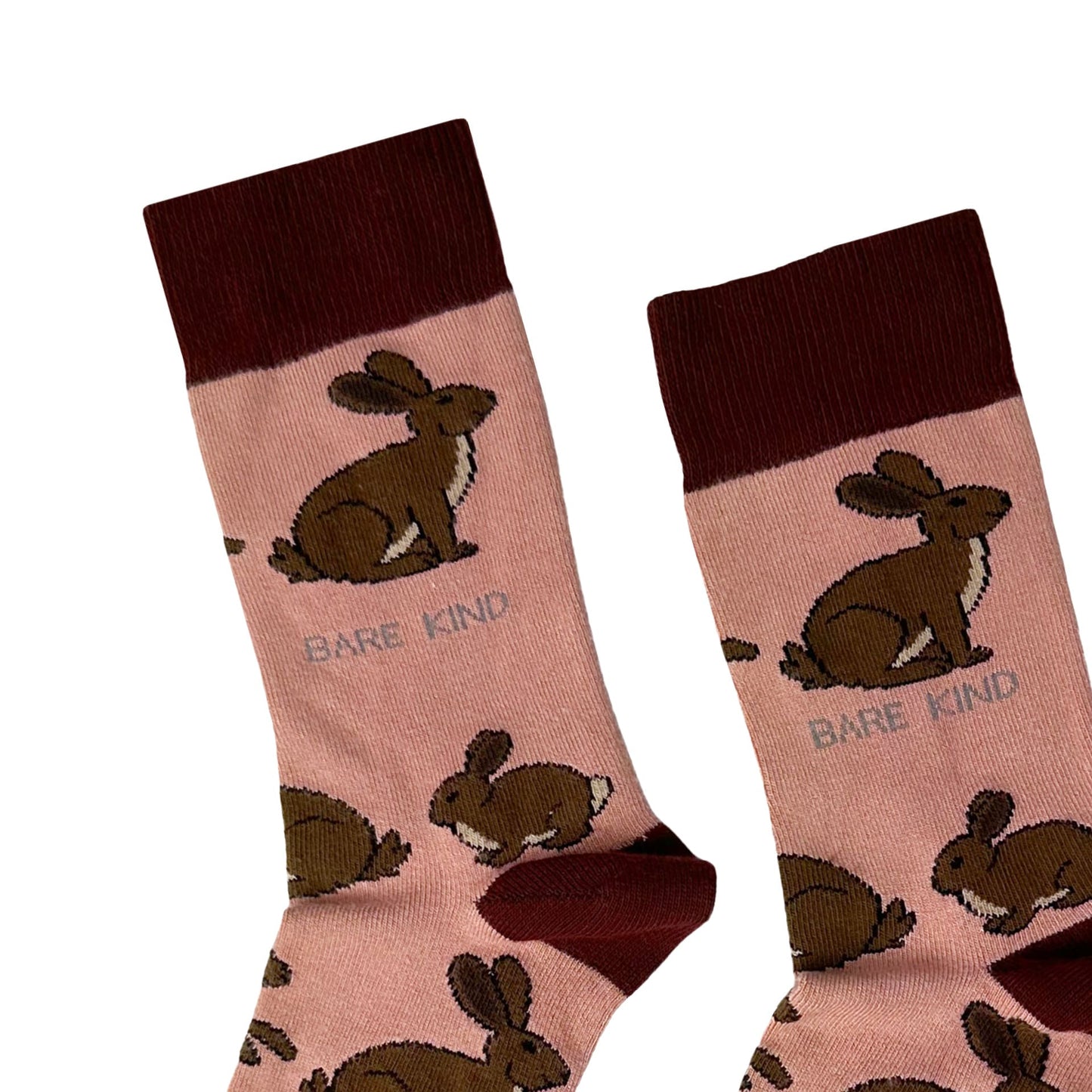
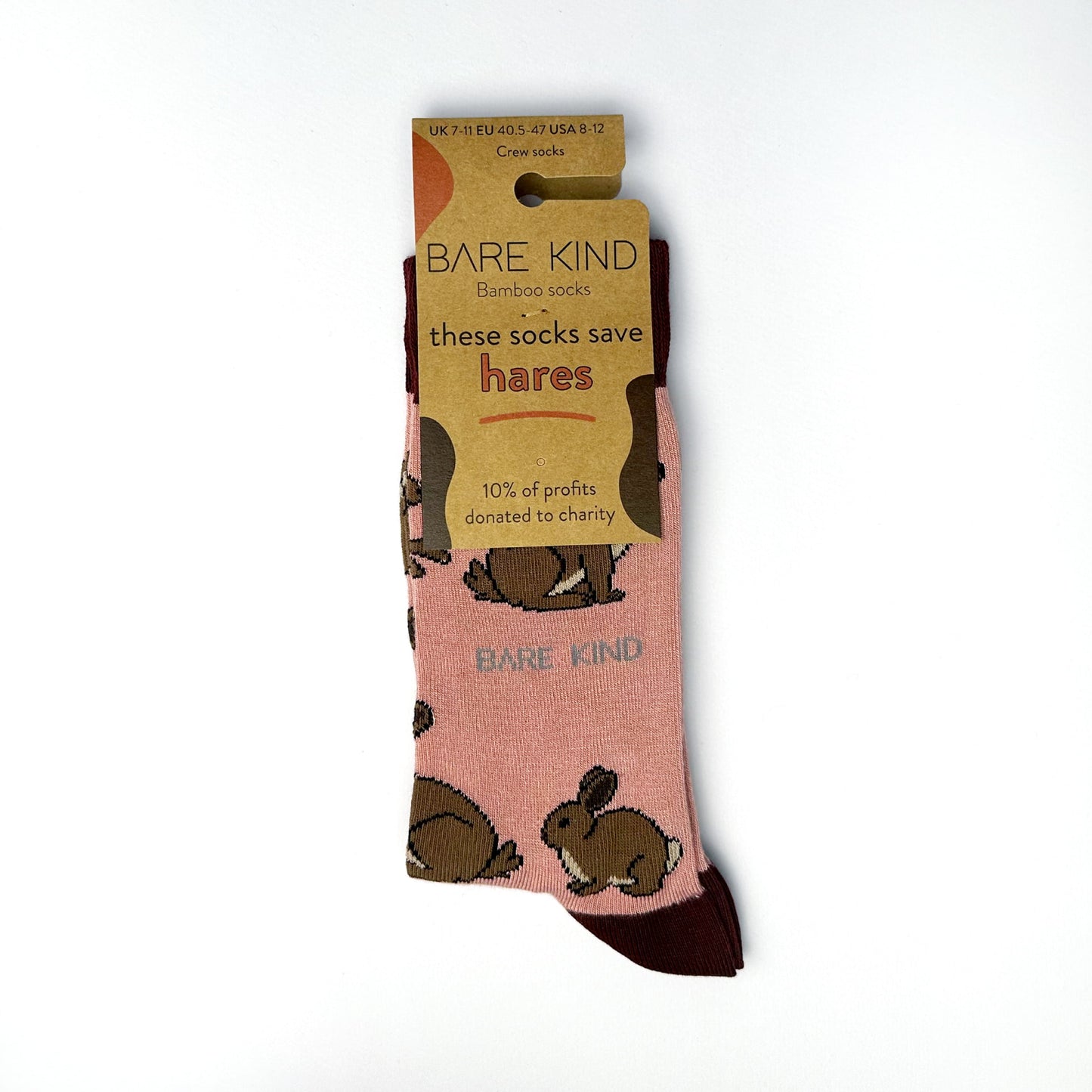
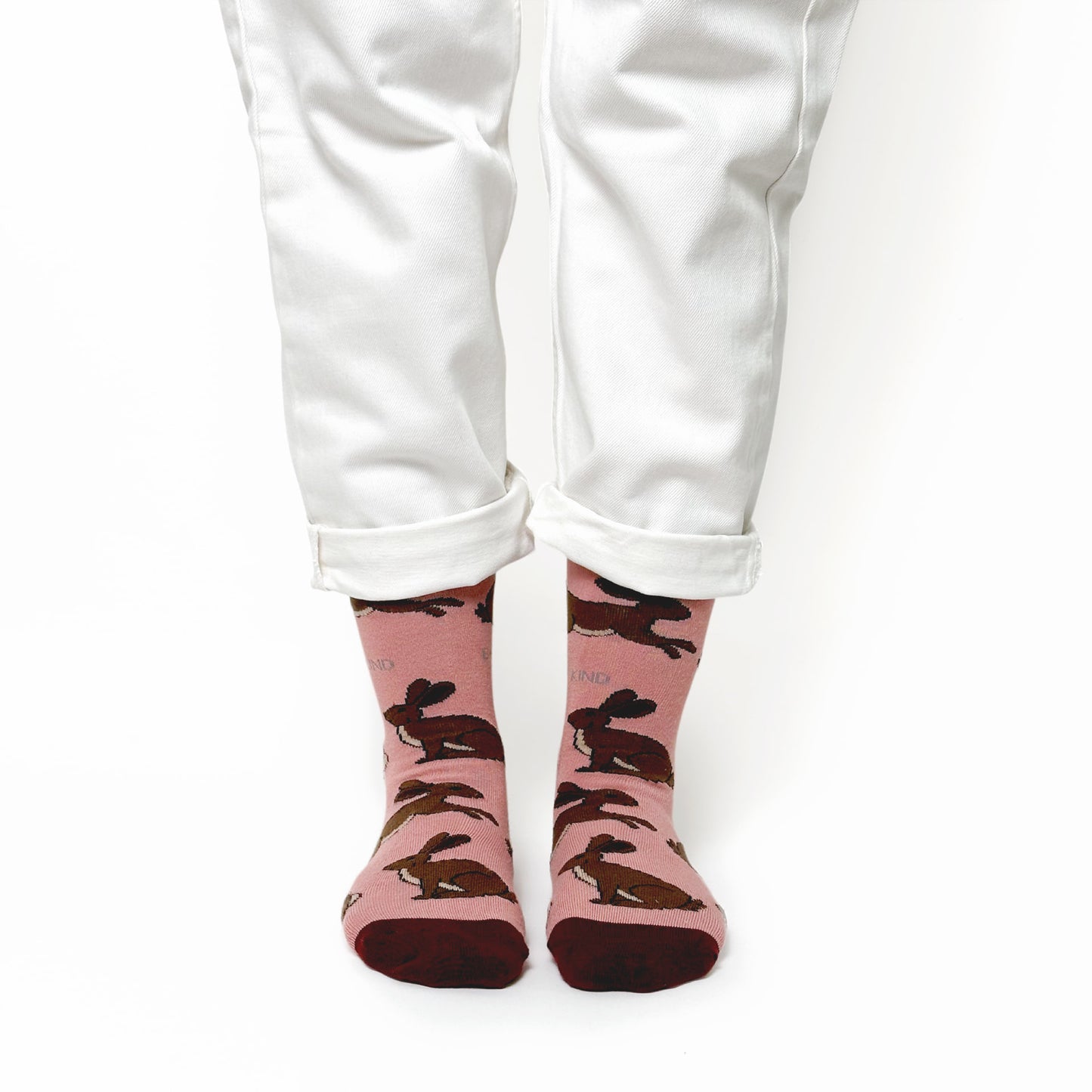
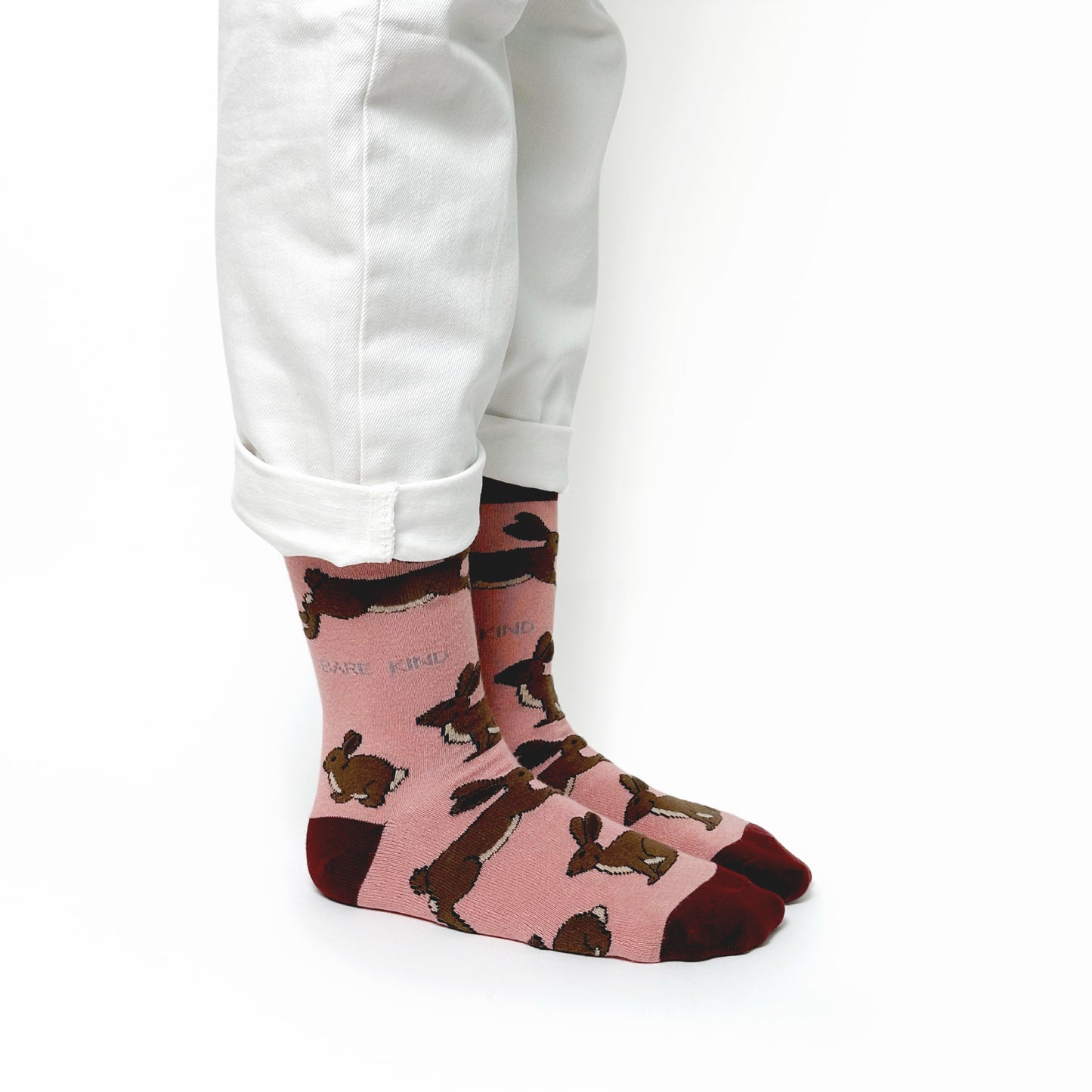
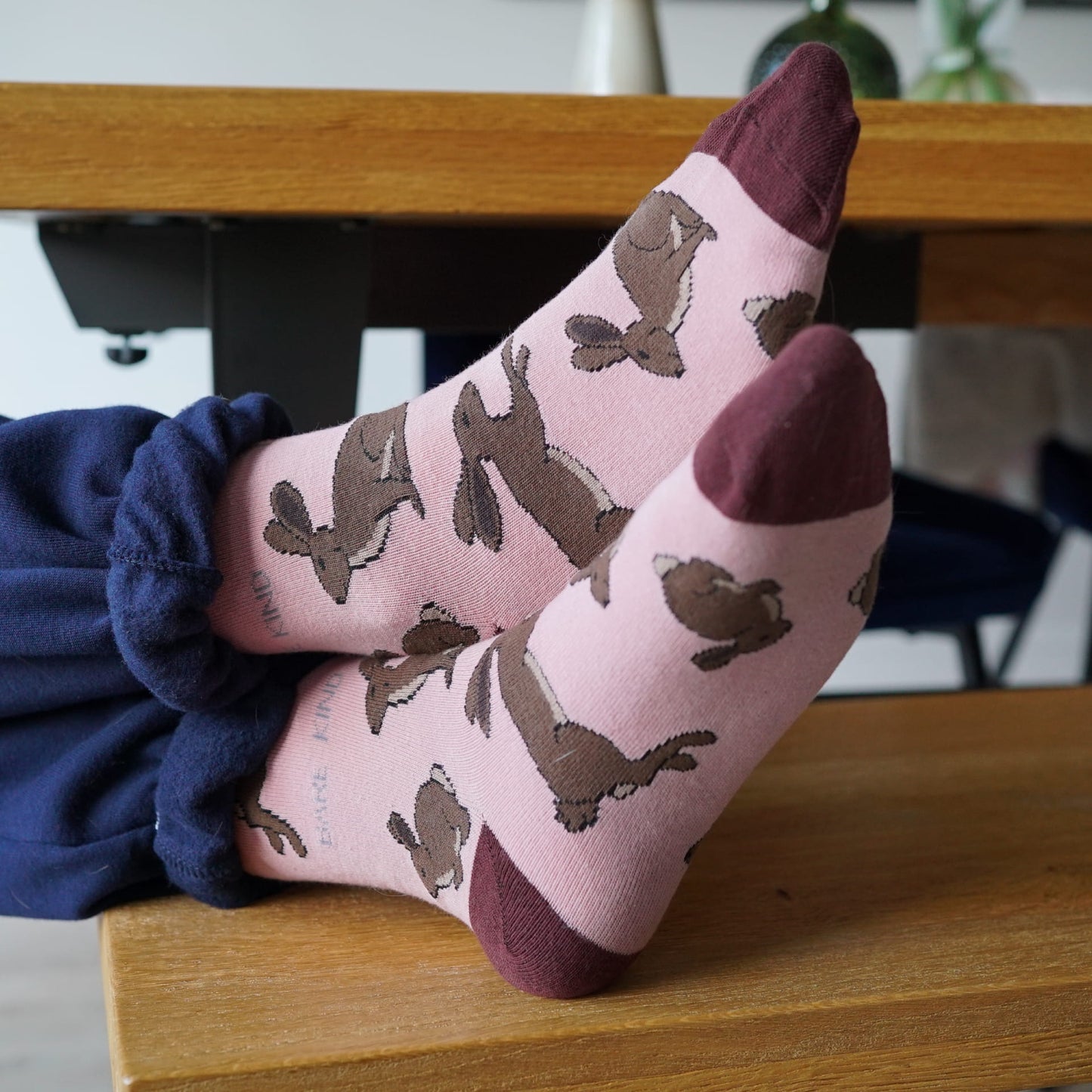
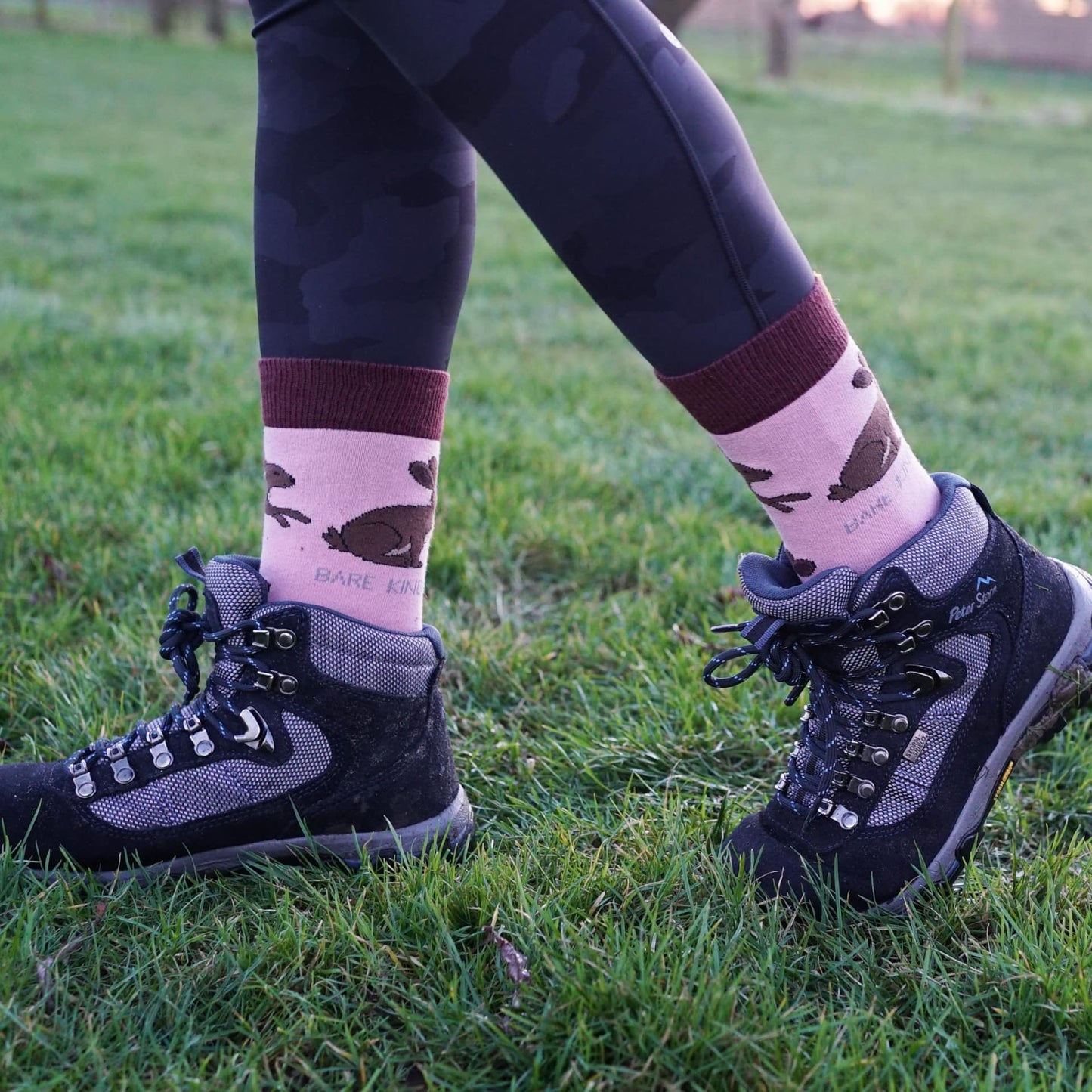
Save the Barn Owls Bamboo Socks
Share
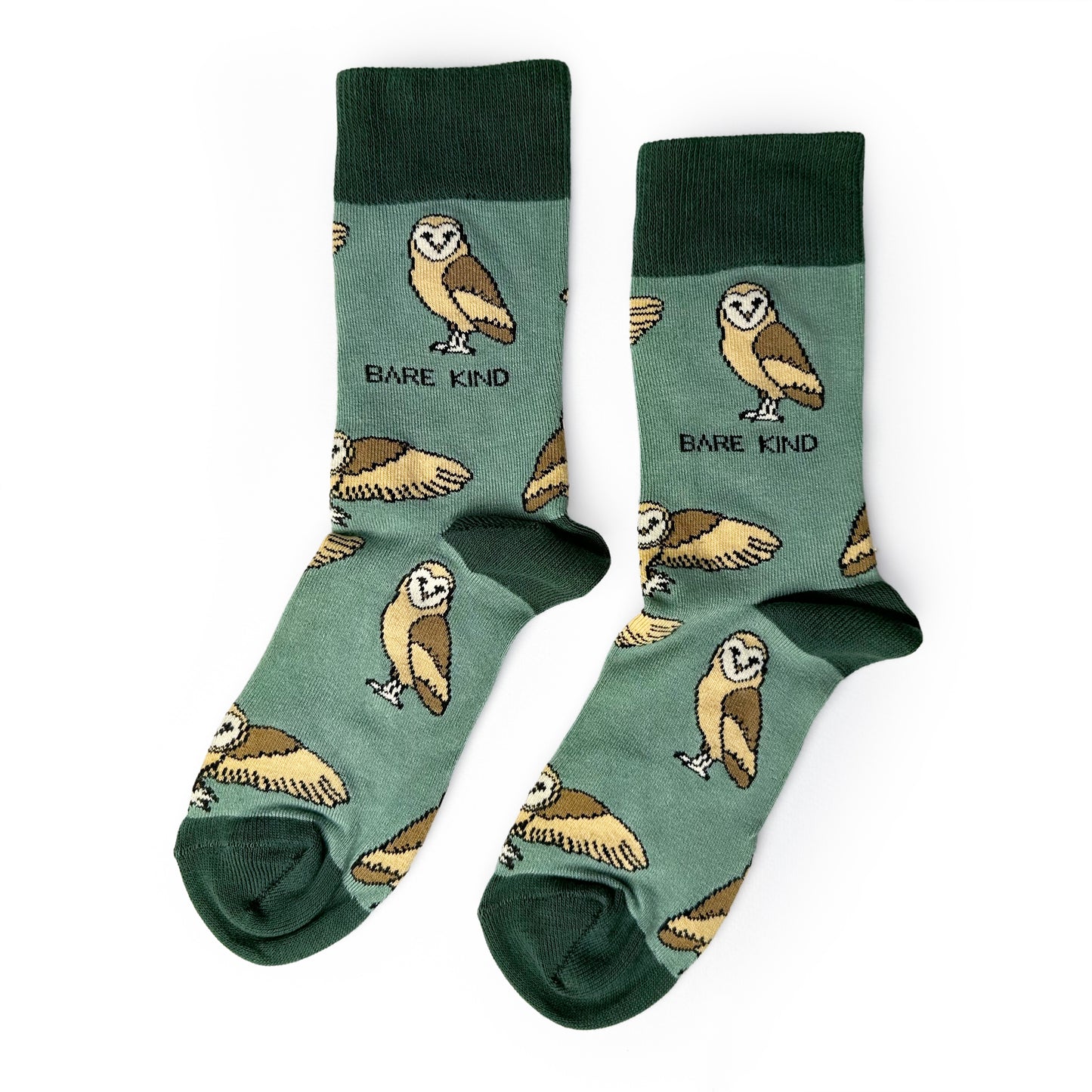

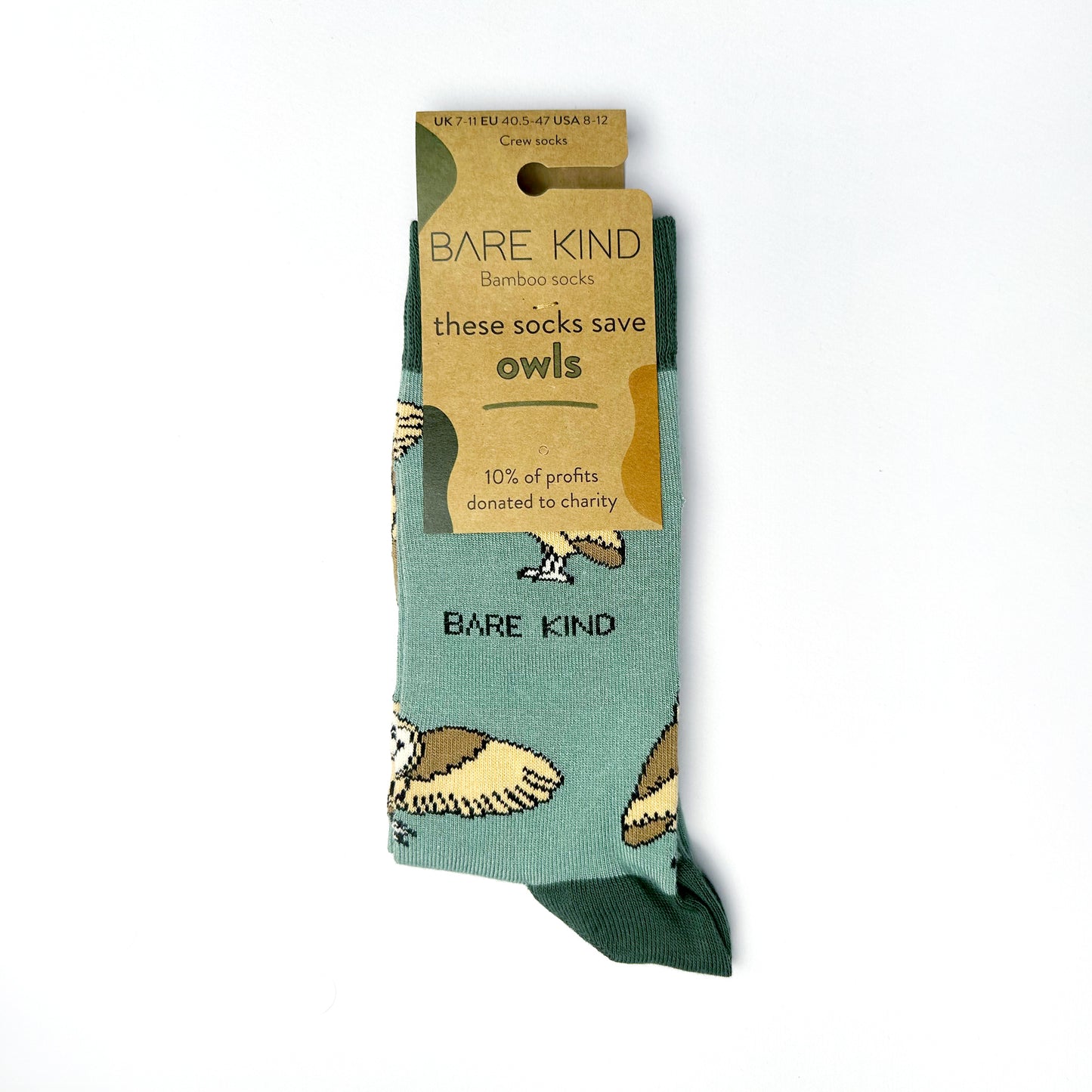
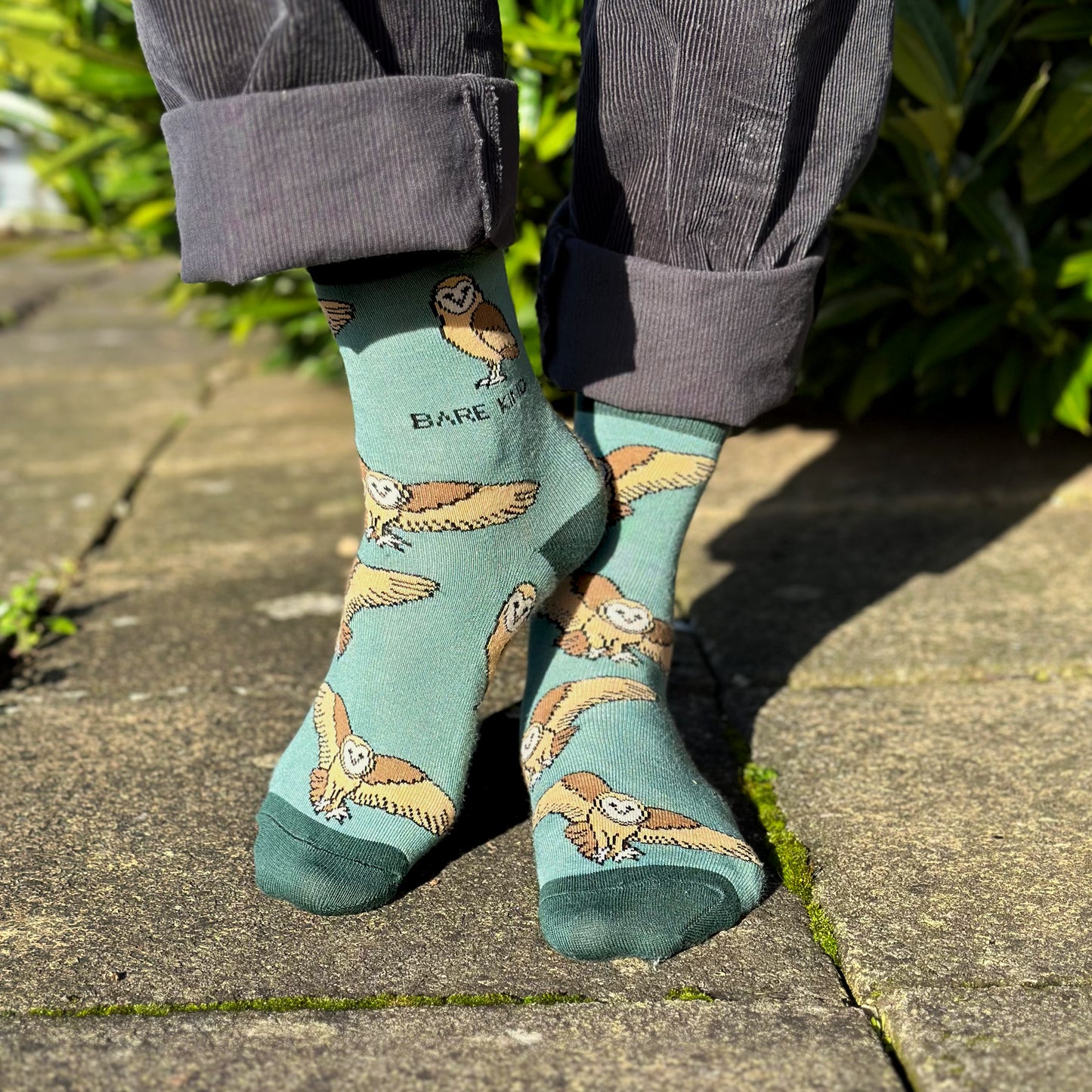
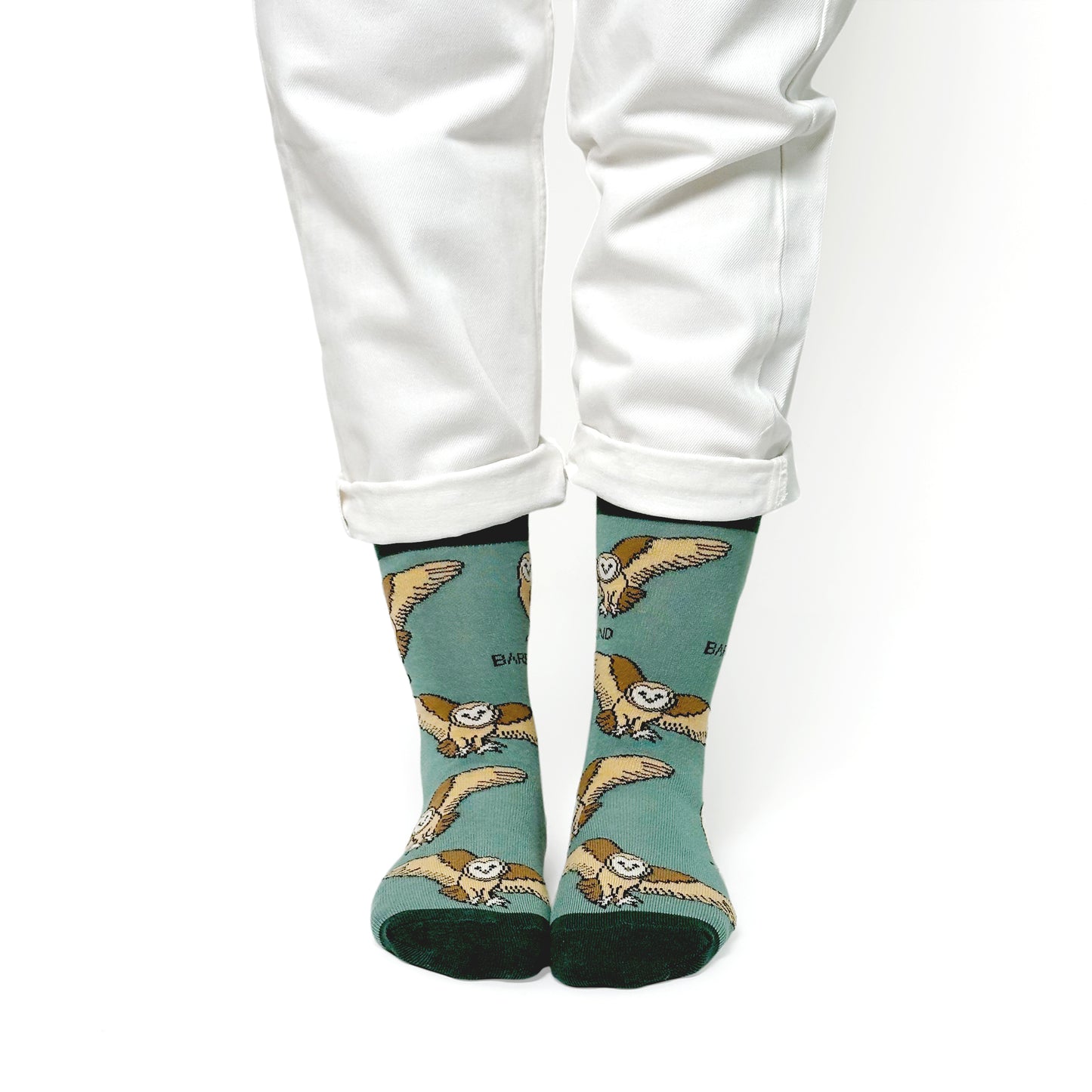
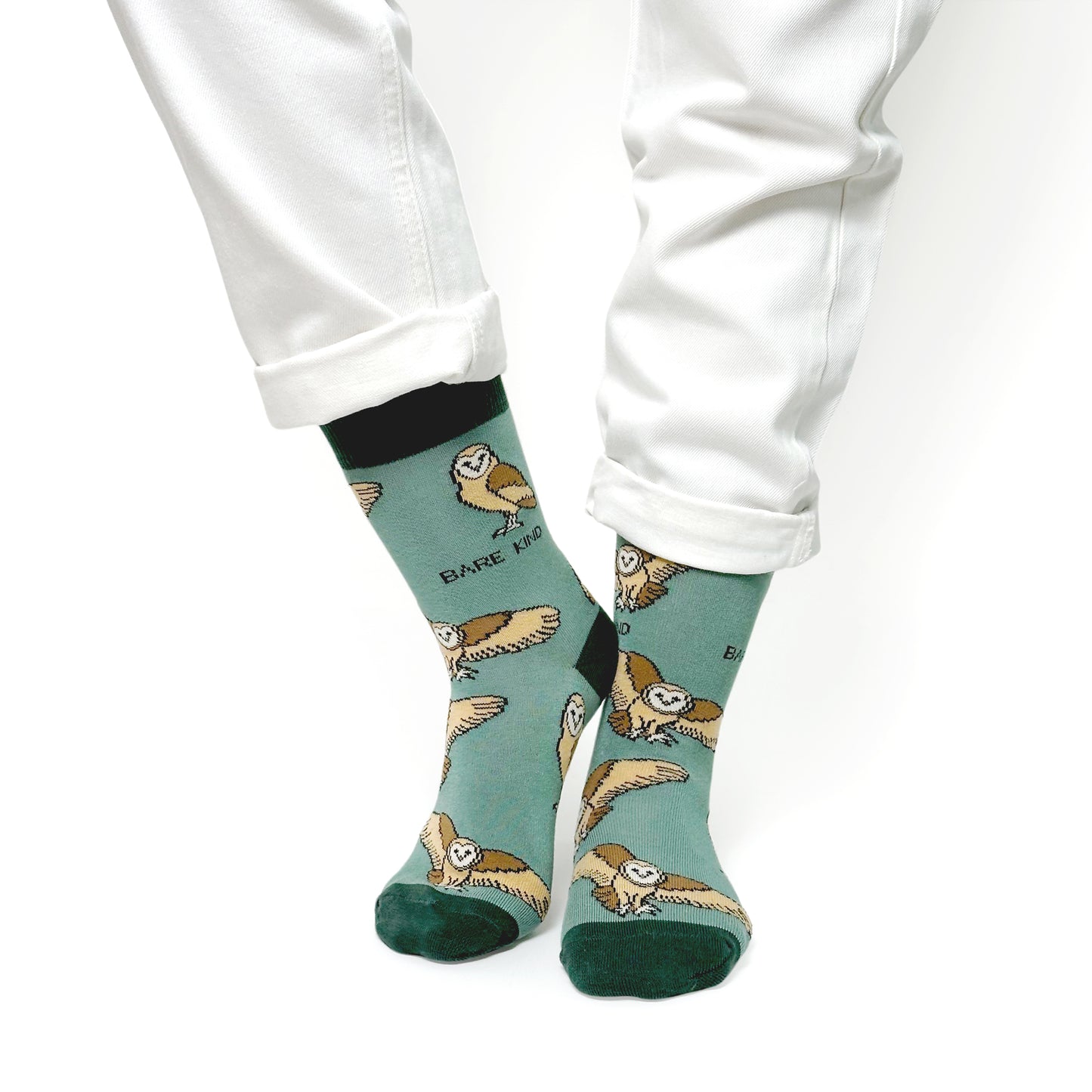
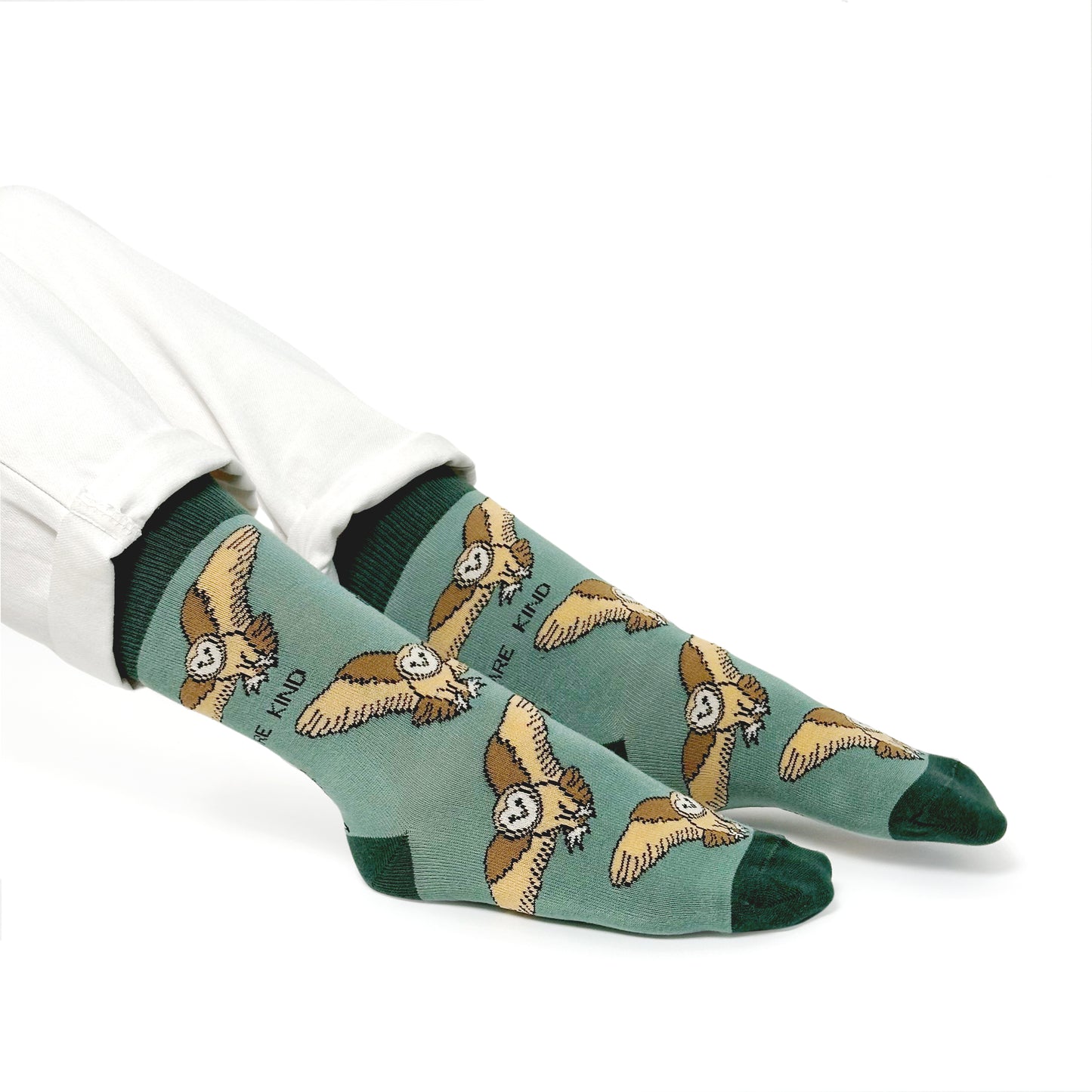
Bare Kind
Save the Bees Bamboo Socks
Share
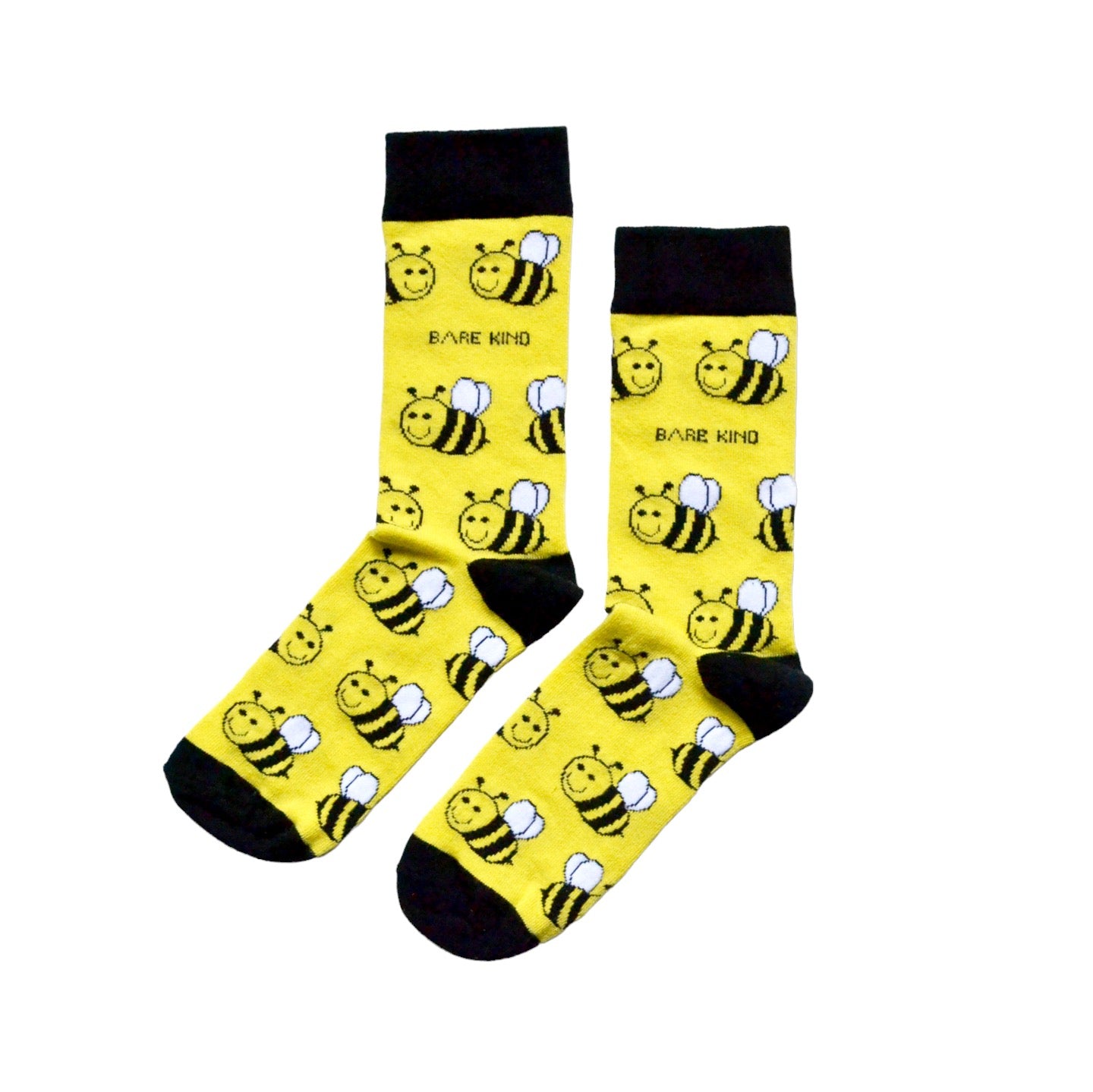
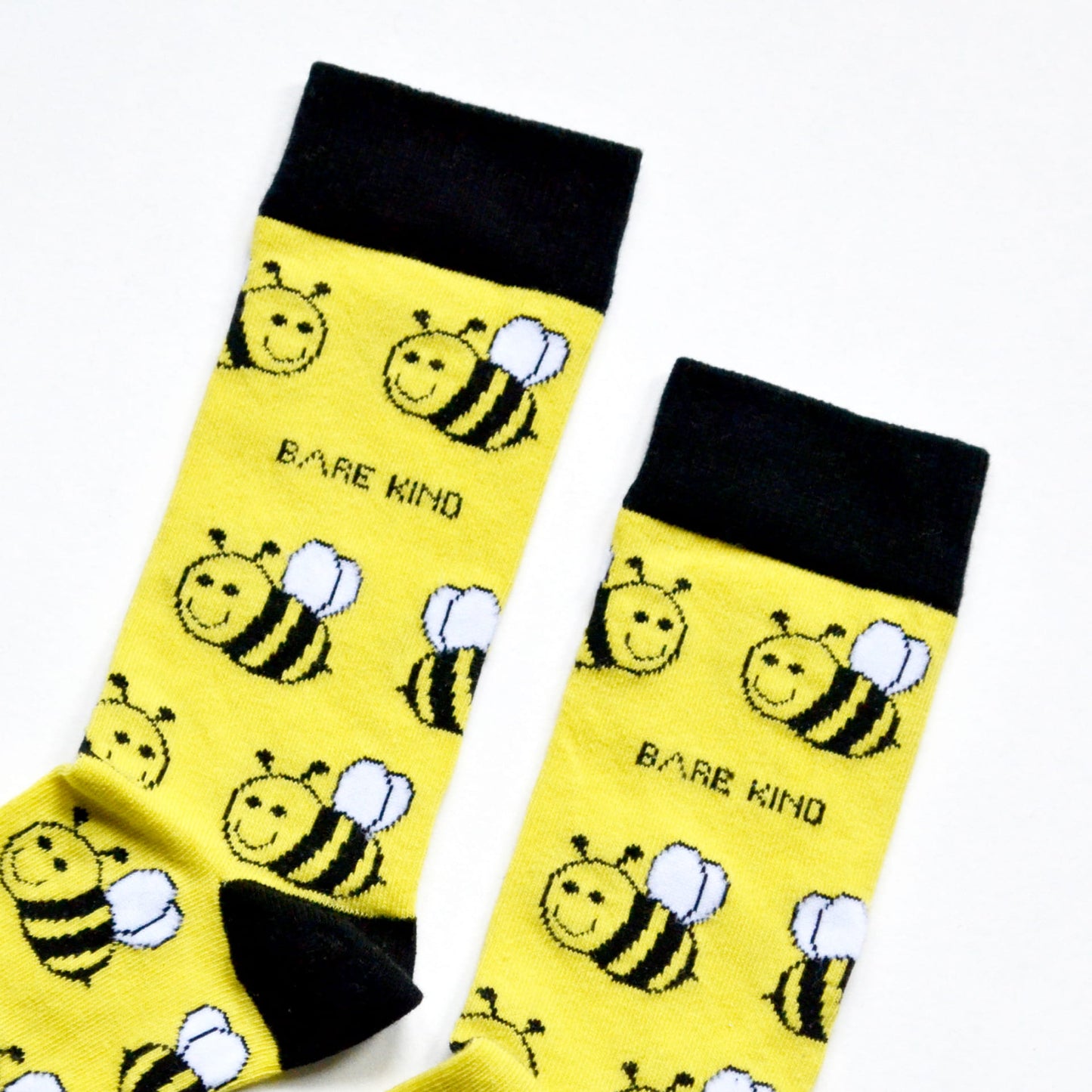




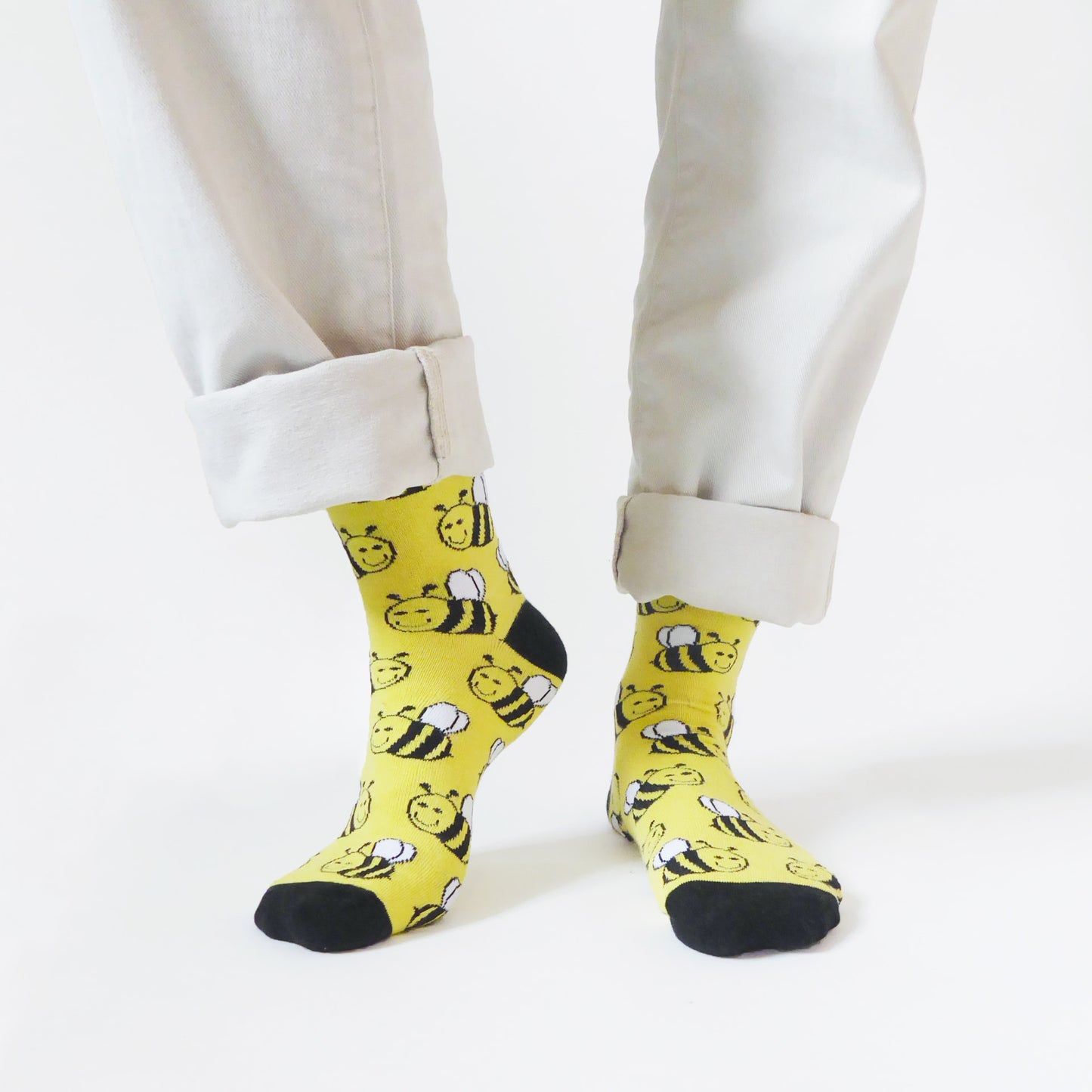
Save the Highland Cow Bamboo Socks
Share




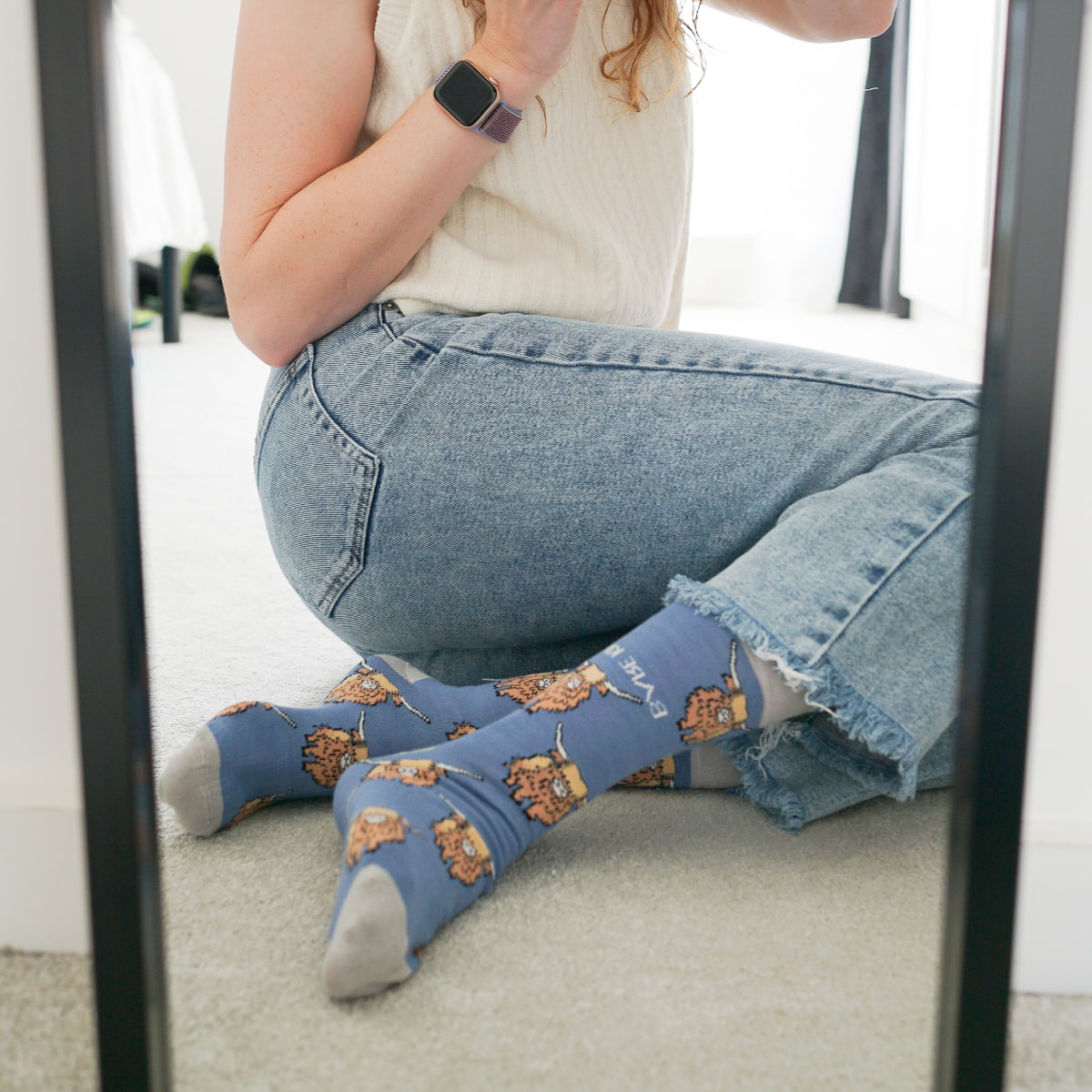
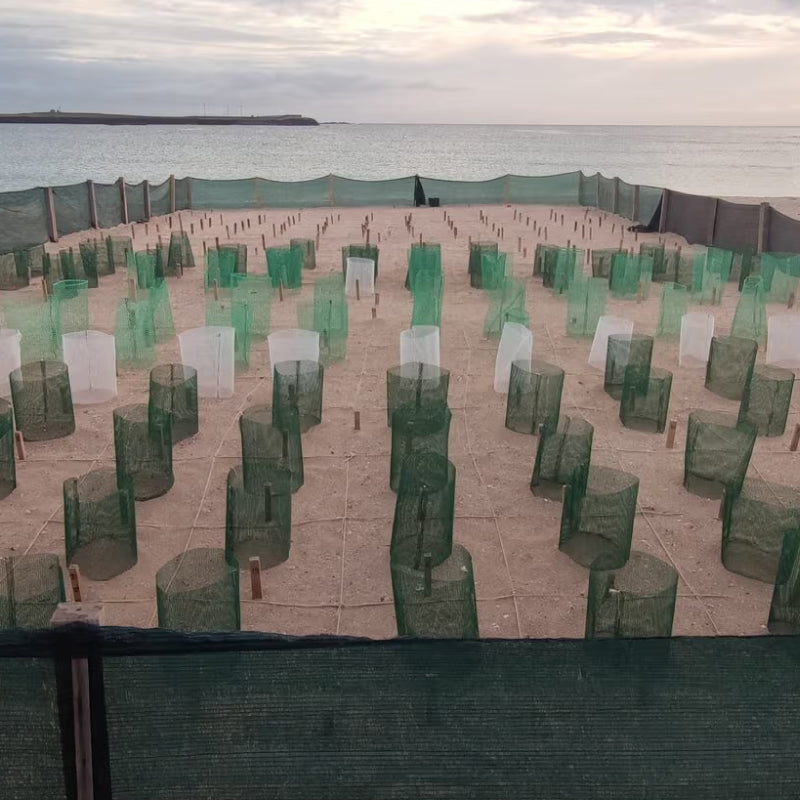
Our philosophy
Restoring the biodiversity of our planet and its varied species is at the core of Bare Kind’s mission. By donating 10% of gross profits to charities that support the animals on our socks, we can continue fighting the fight against species extinction.
Bare Kind has been able to achieve an all-time high of donations in recent years. The business expanded its sock range to 40+ pairs and supports 35+ charities.
Our Charity Impact Reports highlight the projects we have been able to fund with our charity partners and the incredible animals we support.
Our hope is that something as humble as a pair of socks can make a lasting impression on our world and change it for the better. A huge thank you goes out to all our customers who have wanted to make a difference and empower the restoration of our planet with their socks.
Check out last blog posts
View all-

Why Are Socks the Best No-Nonsense Gift for Sec...
Grace MicereWhy Are Socks the Best No-Nonsense Gift for Sec...
Grace Micere -

5 Qualities to Look for When Buying Stocking St...
Grace Micere5 Qualities to Look for When Buying Stocking St...
Grace Micere -

How to Shop Smart This Black Friday 2025? (5 Se...
Grace MicereHow to Shop Smart This Black Friday 2025? (5 Se...
Grace Micere
